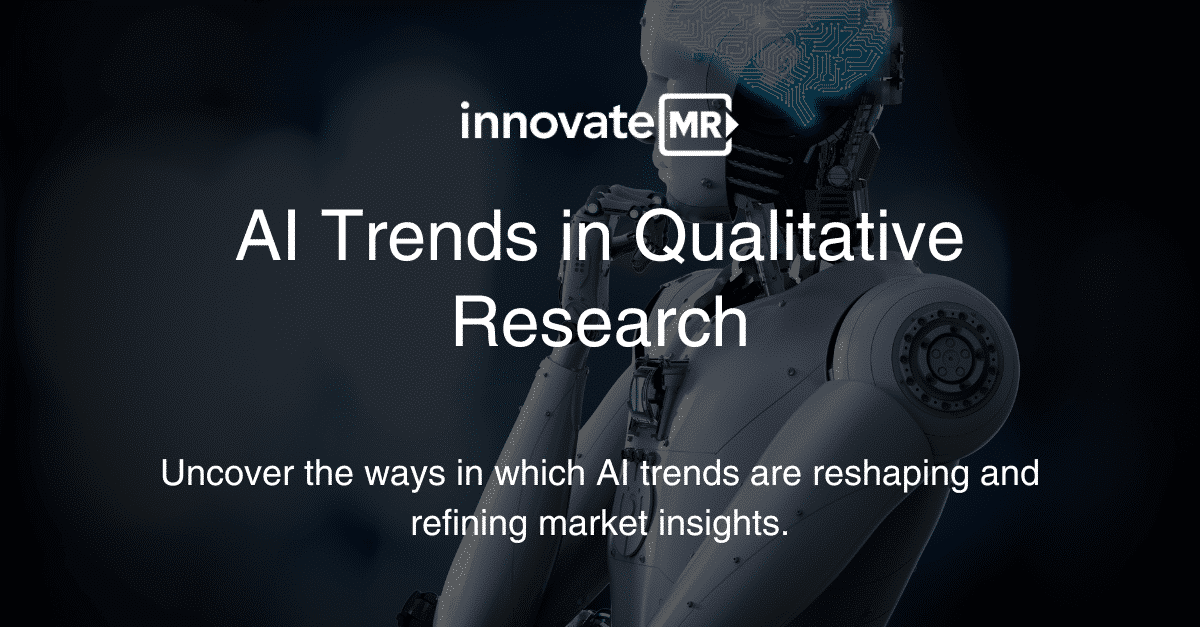
Introduction
Research is a captivating endeavor; it allows us to understand into the intricacies of human behavior and understand the myriad factors that drive us. To truly grasp this complex tapestry, we must explore what people do, how they do it, and the reasoning—both logical and emotional—behind their actions.
As the market research landscape evolves, researchers are increasingly harnessing advanced technologies to enhance their capabilities. Among these technologies, artificial intelligence (AI) stands out as a game-changer, offering unprecedented data collection and analysis scale. AI’s potential to revolutionize market research is immense, promising to make the process faster and more accurate.
Today, technology drives much of market research, with online platforms facilitating large-scale virtual data gathering. From designing surveys to generating insights, AI impacts every step of the research journey. The speed, efficiency, and value AI brings to market research are invaluable, enabling enhanced data-driven decision-making for businesses and researchers alike.
In this article, we explore key AI trends in qualitative research and highlight how AI is transforming the market research industry.
AI-Powered Virtual Assistants and Chatbots
One of the most popular AI applications, virtual assistants and AI-powered chatbots, are used across various industries for tasks like customer service, online community management, and engagement. In market research, chatbots can conduct virtual qualitative interviews and quickly summarize and categorize data.
Automated Text Analysis
Automated text analysis leverages machine learning algorithms and natural language processing (NLP) to extract, organize, and interpret large volumes of text data. This technology identifies patterns, summarizes topics, and detects sentiment, offering a faster and more efficient way to analyze extensive datasets. By processing numerous feedback surveys, automated text analysis provides concise and valuable insights, enabling better data-driven decisions.
InnovateMR’s award-winning Text Analyzer™ exemplifies this trend, using AI to evaluate open-ended survey responses in real time. This technology ensures high-quality samples by filtering out common issues like gibberish, spelling errors, and duplicate entries, ensuring genuine human behavior.
The enhanced Text Analyzer™ streamlines managing open-ended responses and boosts the quality of research outputs. By filtering out inaccurate responses and upholding high data standards from the beginning, researchers can focus more on extracting insights and making informed decisions based on authentic respondent input.
Automated Image Analysis
Automated image analysis employs computer algorithms to process and analyze visual data, extracting and classifying information such as facial features, objects, and motion. This technology is invaluable in various applications, including facial recognition, medical imaging, surveillance, and manufacturing. In market research, this AI trend helps detect brand logos in consumer-posted images, track customer behavior, and identify opportunities for product success.
Computer-Assisted Qualitative Data Analysis (CAQDAS)
CAQDAS tools assist researchers in analyzing qualitative data, transforming extensive text and audio data into digestible visuals like graphics, tables, and diagrams. These tools enhance the accuracy and efficiency of narrative analysis, enabling researchers to identify patterns and relationships in data. CAQDAS is an AI trend that’s widely used across sectors, reducing errors and providing comprehensive insights through deeper analysis and visual representation of data.
Predictive Analytics
Predictive analytics combines AI with statistical techniques like data mining and predictive modeling to analyze historical and current data, forecasting future trends or events. This technology helps researchers identify potential market opportunities and risks, driving strategic and tactical decisions based on consumer behavior.
Natural Language Processing
NLP allows computers to understand and interpret human language, analyzing customer feedback and survey responses to gauge sentiment. This capability helps researchers make informed decisions about audience targeting and messaging, enabling organizations to create more efficient strategies and compelling content.
Sentiment Analysis
Sentiment analysis, or opinion mining, categorizes text based on the expressed sentiment, whether positive, negative, or neutral. Utilizing NLP and machine learning, sentiment analysis helps researchers understand customer sentiment, identify trends, and uncover insights about customer needs and preferences. Although still developing, sentiment analysis is a powerful AI trend that automates the processing of vast amounts of data.
The Future of AI in Market Research
AI won’t replace human researchers, as empathy, compassion, intuition, and intelligence require a human touch. However, AI can streamline and automate processes, enhancing the speed and reliability of data analysis.
“Technology has liberated research and analytics to handle massively bigger samples and data sets, perform vastly more complicated tasks, and inform much wider audiences than ever before,” according to ESOMAR, 2022.
AI’s potential to revolutionize market research lies in its ability to enhance every stage of the research journey, from survey design to data interpretation. As technology continues to drive the industry, AI will unlock new possibilities and opportunities for businesses and researchers alike.
Embracing AI trends allows us to focus on strategizing improvements and acting on feedback, letting AI handle the heavy lifting.
About InnovateMR – InnovateMR is a full-service sampling and ResTech company that delivers faster, quality insights from business and consumer audiences utilizing cutting-edge technologies to support agile research. As industry pioneers, InnovateMR provides world-class end-to-end survey programming, targeted international sampling, qualitative and quantitative insights, and customized consultation services to support informed, data-driven strategies, and identify growth opportunities. Known for their celebrated status in customer service and results, InnovateMR combines boutique-level service with extensive global reach to achieve partner success.


